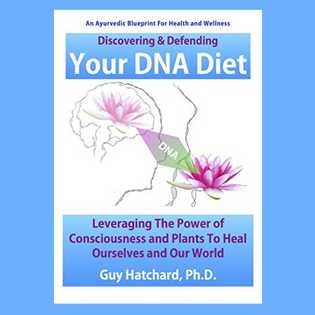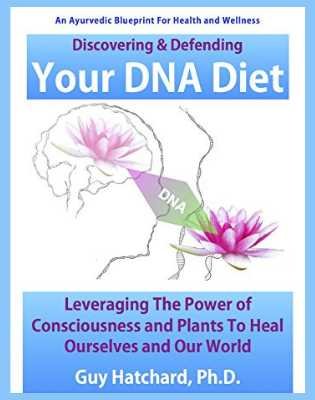An article in the Herald today rated New Zealand as the best place on the planet to survive an apocalypse. Given the standard of press coverage here, we might not even hear about it if it did happen.
Yesterday, the Herald’s Social Issues reporter, Isaac Davison, reviewed a paper (UPDATE: This paper has been removed from SSRN at the request of the author, SSRN, or the rights holder) published in the prestigious journal The Lancet authored by the Ministry of Health.
The paper found a huge increase in Acute Kidney Injury among four million Kiwis in the twenty one days following mRNA vaccination. I scanned Isaac’s article in vain for a mention of kidney injury. Like me, Isaac wears glasses; he might need a new prescription. He describes himself in the following terms:
“We are your advocate, Aotearoa. Uncovering stories that matter, asking hard-hitting questions of those in power, ….providing Premium expert opinion and analysis. Bringing you distinctive, quality journalism and breaking news from across New Zealand and around the world. With specialists working together to create in-depth reads, engaging video, and unmissable podcasts.”
Isaac may be better off in comedy, he certainly raised a good laugh here at the Hatchard Report. His article quoted some ‘experts’ who could join him on the stand up circuit.
Dr. Tim Hanlon from Te Whata Ora’s (our national health service) National Immunisation Programme was quoted as saying:
“These findings provide further reassurance on the safety profile of the vaccine, particularly from a New Zealand-specific context,….Importantly, studies have found that the risk of any of these [adverse events] following infection with SARS-CoV-2 (Covid-19) is substantially greater than after Covid-19 mRNA vaccination.”
My question is: what studies is Hanlon referring to? Looking for definitive studies, I found a paper published in The Journal of Clinical Medicine entitled “The Incidence of Myocarditis and Pericarditis in Post COVID-19 Unvaccinated Patients—A Large Population-Based Study”. This large Israeli study of 196,992 unvaccinated subjects found no post Covid-19 infection association with incidence of Peri/Myocarditis. In other words, in the absence of mRNA vaccination, Covid-19 does not induce myo/pericarditis. End of story. The inescapable conclusion: the elevated myo/pericarditis incidence found in New Zealand is due to mRNA vaccination and nothing else.
Associate Professor Helen Petousis-Harris, a vaccinologist at the University of Auckland, who has been a consultant for Pfizer (???), was also quoted in the article, she said:
“The research paper picked up a known safety issue with the vaccine – myocarditis had been found as a rare side effect in international studies”.
Petousis-Harris warned against reading too much into the research saying:
“There are limitations to these kinds of studies. I would be cautious in over-interpreting any of this as we do have a lot of data internationally and it has not found these outcomes [???]. It’s also clear that the safety profile of this vaccine is very well understood through the culmination of vast amounts of international data [???].”
So presumably, no worries then, or should Petousis-Harris be aware of a study completed in Taiwan and published on 28th October 2022 entitled “Changes of ECG parameters after BNT162b2 vaccine in the senior high school students”. This found 763 students (17.1%) had at least one cardiac symptom after the second vaccine dose, mostly chest pain and palpitations. 51 (1%) had abnormal Electrocardiogram (ECG) results. While 1/985 school children were diagnosed with myocarditis or clinically significant arrhythmias post 2nd dose of the mRNA Pfizer vaccine. These results were commensurate with the results of a prospective Thai study of 300 high school students.
We have 815,000 school children in New Zealand. If the Taiwan study is to be relied on (it should be), it is likely that 8,150 would have recorded an abnormal ECG and 827 a clinical cardiac problem (if only they had been tested).
Petousis-Harris knowledgeably (???) warned us against reading too much into this; after all, they are only young school children who will get better, right? Think again. A recent case report recorded a 17 year old male with vaccine induced myocarditis who suffered from ventricular tachycardia during exercise even after 6-7 months—a risk factor for a heart attack.
Professor Peter McIntyre, an epidemiologist at the University of Otago, was quoted “the vaccine’s link with myocarditis was picked up and communicated very early in New Zealand.” Was it? The Ministry of Health did not send out a warning to DHBs (not to the public) about Myocarditis incidence until mid December 2021, a full six months after they first knew about it. Is that ‘very early’ in Ministry of Health speak? Following this date, the public were still being subjected to saturation government advertising saying mRNA vaccination was completely ‘safe and effective’.
Professor McIntyre deserves some credit though. He says
“we may need to start moving away from everything for everyone”. Translation: he knows it is not helpful for school children and most other people, if not all people.
Medsafe was quoted
“Up to August, there had been 500 spontaneous [???] reports of myocarditis, pericarditis or myopericarditis within 30 days of vaccination. These reports do not necessarily have a causal relationship with administration of [the vaccine] and may represent coincidental events.”
Well, thank goodness for that. Without this helpful advice, I could have been very worried about this article yesterday by Newshub “Wellington and Hutt Hospital emergency departments seeing unusually high demand”. The article reports, “The reason for the spike was not clear.” Now correct me if I am wrong, but wouldn’t it normally be the job of the hospital to know why and the job of a reporter to ask why? It couldn’t be due to high rates of cardiac injury and acute kidney disease could it? I do hope that if there is a nuclear war we hear about it in safe little New Zealand.






